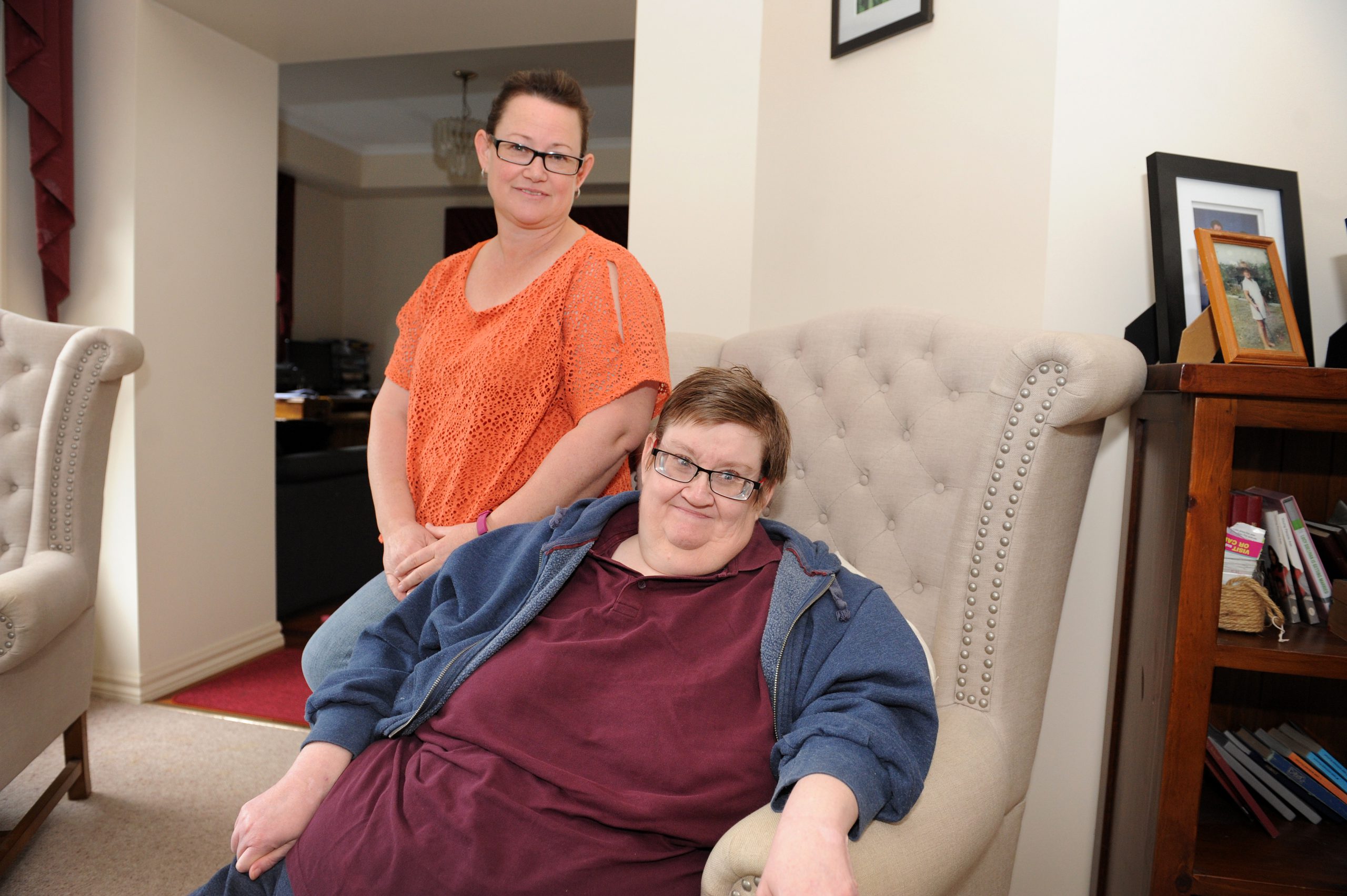If there is one person who knows what it means to look after someone in need, it is Erica Smith.
In fact, Ms Smith was not just caring for one person, she was looking after almost everyone in her family.
Originally based in Queensland, the former journalist turned-children’s book author moved to Victoria to escape her stressful life.
For 15 years Ms Smith looked after her parents, her stepdad, two nephews and a brother who had a genetic disorder and she just needed to breathe.
“My dad got sick, he died in 2005, my mum got breast cancer in 2006 and I looked after her, my stepdad had leukemia in 2002 so between all of those with Phillip (brother), and Dylan (nephew), and another nephew and a farm and a business it basically [took a toll],” she said.
“So I moved down here to escape my family – and they followed me.”
Ms Smith is staying at a Traralgon East property where she cares for her brother Phillip, who has been diagnosed with a genetic disorder, Prader-Willi syndrome, and nephew Dylan who has autism.
Ms Smith searched for support services to help 39-year-old Phillip whose condition makes him constantly hungry to the point where he would eat continuously if not supervised.
She hoped Phillip would be able to access support from the National Disability Insurance Scheme to help him live independently.
Ms Smith, however, found that navigating the NDIS was no walk in the park.
She called every support agency she could think of including the National Disability Insurance Agency which manages the NDIS and was directed to different service providers.
“I got really frustrated so, after my third attempt, I’m in tears and I ended up ringing them [again] and was told that [Phillip] was already approved.”
That was November last year and in December Ms Smith found herself with an NDIS planning worker to work out a one-year plan for Phillip.
She was so surprised by the quick turn of events that she found the planning meeting a nerve-wracking one.
“Admittedly I was a little nervous about the NDIS because we don’t have paperwork to say that Phillip has a proper diagnosis because that was 39 years ago,” she said.
“Basically what we wanted was access to programs for Phillip to get a life because down here he had nothing, he had no friends, he can’t catch a bus because there’s no bus, [and] we also asked for three days a week of programs so that he could get out [and] also some overnight stays.”
Ms Smith said the planning officer rang before Christmas and advised them Phillip’s plan had not only been approved but “told us what we got and it was just phenomenal”.
“You should see my face lit up,” Phillip recalled.
Through the NDIS, Phillip now goes to life skill classes where he learns to cook, bake, do physical activities and volunteer for a store in a disability service in Traralgon.
Ms Smith said she now had three days a week to do what she wanted and look after herself while her brother receives support.
She admitted the NDIS was a relief because “you get to a point where you can’t do it”.
“Phillip’s happier and that’s the most important thing,” she said.
Ms Smith advised carers not to give up when pursuing NDIS for their loved ones.
“You can feel like you’re beating your head against the wall. [If] it gets too hard, stop and get back to them [after] a week,” she said.
“Do it [call] when you’re in a good frame of mind because if you’re already frustrated that’s not the time to [speak to people].”
In the end, according to her, “all the running around would be worth it”.












